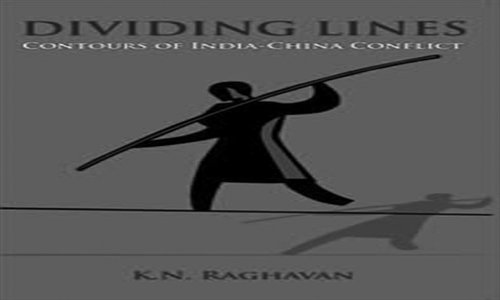Objective historical stance helps us find solutions for modern woes

Currently, East Asia is ridden with disturbing territorial disputes.
Japanese refer to South Korea's de facto control of Dokdo, known as Takeshima in Japanese, as an illegal occupation. Disputes over the Southern Kuril Islands, known by Japan as the Northern Territories, have dragged on between Japan and Russia for years.
Also, China and India have territorial disputes along their shared border.
These disputes will stand in the way of the development of relations between Asian countries.
To resolve territorial disputes, both sides should look back at history and respect the truth. We should take an objective attitude toward disputes and not be led astray by nationalism or distort history.
Dividing Lines: Contours of India-China Conflict (Leadstart Publishing, August 1, 2012), written by K.N. Raghavan, offers a good example of this.
Raghavan has reviewed Indians' perceptions about the territorial dispute between China and India. They are used to blaming the dispute on China's "treachery." This has become a fixed idea in Indian minds.
Fixed patterns of thinking are a serious problem in disputes, where both parties are used to blaming the other. But such attitudes only worsen the situation in the long term.
Raghavan's book takes us back to the border war between China and India in 1962. After winning the war, Chinese troops announced their withdrawal from the disputed area. Indians have long viewed China as an aggressor.
However, Raghavan raises the question in his book: if China was the aggressor, why did China not retain any piece of territory in the eastern sector where the war was fought and why did it hold back when the Indian army being in full retreat?
Based on his analysis of the evidence, Raghavan concludes that "the biggest failure was when India refused China's proposal for talks to extend Panchsheel which was to lapse on June 2, 1962."
Raghavan's objective attitude will acquaint more people with the facts. If countries really want to resolve disputes, they should have an objective attitude and respect history.
For instance, Japanese right-wing nationalists have produced textbooks, used in a small number of schools in Japan and which passed the approval process at the Ministry of Education, that attempt to deny wartime atrocities. Such actions only worsen current disputes.
Asia is still in a critical period of development. Asian countries should give top priority to development.
A peaceful situation is in accordance with the interests of all Asian countries. At this time, we should take an objective attitude toward history and not let territorial disputes stand in the way of regional development.